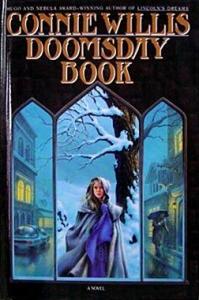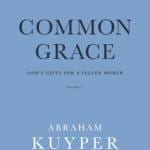
What will the end of the world look like? In Oxford in 1348, it looks like the spread of the bubonic plague. In Oxford in the near-ish future, it looks like the spread of a flu-like virus. Caught in between the two are Kivrin, a young historian accidentally sent to the wrong year and now a witness to the hellish effects of the plague, and Dunworthy, her mentor who is trying to save her despite the chaos and confusion caused by the outbreak of a new strain of disease. Whether the two will survive their respective medical crises is the plot of Connie Willis’s Doomsday Book.
While this is technically a work of science fiction (and, quite rightly, the winner of both the Hugo and the Nebula Awards–two literary prizes which are actually worthwhile, unlike certain prizes which shall not be named but which rhyme with ‘mow bell’), the technology is largely incidental to the work. They are devices use to put the characters into the situations which the author wants to explore, and little more. The time travel device used by historians is only briefly mentioned as having certain broad rules that avoid historical paradoxes, while the historians themselves have access to a chemical (or enzyme or some such) that lets them quickly learn new languages in the time to which they’re sent.
Instead, the Doomsday Book focuses on the struggle of two people to survive and to help others in the midst of a situation that is completely beyond their control. Along the way, they ask all the right questions about God, man, nature, and all the other things we need to know about to help us through a crisis. Not that we as Christians will necessarily agree with all the conclusions, but we can appreciate the way in which they are presented.
Especially interesting is Kivrin’s interaction with the Priest she meets in the 1300s, Father Roche. The Father is hard working, conscientious, and cares deeply about his flock (even the cranky old noble who dislikes him). The contrast between Kivrin’s doubt in God in the face of the plague and Father Roche’s setting aside of doubt in the face of the plague is really the central theme of the book: when horrible things beyond our control happen, will we accuse God and ask where he is? Or will we see His loving hand at work guiding and protecting His people through the perils of this life?
So I heartily recommend this book–though with the important disclaimer that it is a piece of slow and reflective sci-fi, not my normal action-packed pulp fare. If I had written a book about time travel to the Middle Ages, it would have involved knights whaling on each other. But then it wouldn’t have been the Doomsday Book, and it wouldn’t have been nearly as good.
Dr. Coyle Neal is co-host of the City of Man Podcast and an Associate Professor of Political Science at Southwest Baptist University in Bolivar, MO












